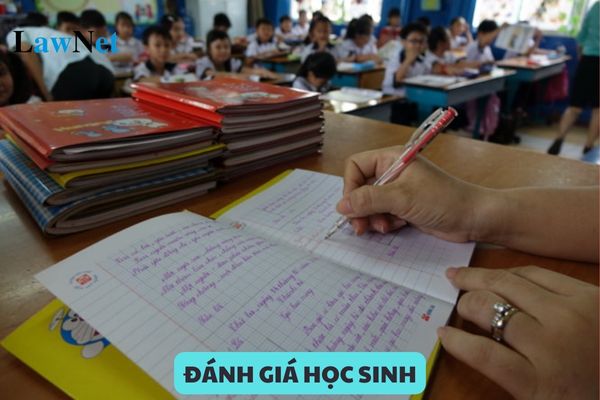Summary of circulars on student assessment applied to the new curriculum in Vietnam
Summary of circulars on student assessment applied to the new curriculum in Vietnam
Assessing students involves evaluating their training and learning outcomes through activities that collect, analyze, and process information by observing, monitoring, discussing, testing, and commenting on the training and learning process in compulsory subjects, elective subjects, mandatory educational activities, and local educational content in the education curriculum.
Currently, the Minister of Education and Training has issued several circulars on student assessment applied to the new curriculum as follows:
- Circular 10/2022/TT-BGDDT regulating the assessment of learners in the literacy eradication program.
- Circular 43/2021/TT-BGDDT regulating the assessment of students in the lower secondary and upper secondary levels continuing education programs.
- Circular 27/2020/TT-BGDDT issuing the regulations on assessment of primary school students.
- Circular 22/2021/TT-BGDDT regulating the assessment of lower secondary and upper secondary school students.

Summary of circulars on student assessment applied to the new curriculum in Vietnam (Image from the Internet)
What is regular assessment of upper secondary school students in Vietnam?
Based on Article 2 of Circular 22/2021/TT-BGDDT, the definitions are as follows:
Definitions
In this Circular, the following terms are understood as follows:
...
- regular assessment is the activity of evaluating the training and learning outcomes of students during the process of teaching activities as required in the general education program; providing feedback to teachers and students to promptly adjust during the teaching process; supporting and promoting student progress; affirming the results achieved by students in the process of completing training and learning tasks.
- Periodic assessment is the activity of assessing the training and learning outcomes after a period in the school year to determine the level of task completion as required in the general education program; providing feedback to educational managers, teachers, and students to adjust teaching activities; confirming the results achieved by students.
Thus, regular assessment of upper secondary school students is the activity of evaluating their training and learning outcomes during the teaching activities as required in the general education program.
regular assessment provides feedback to teachers and students for timely adjustments during the teaching process; supports and promotes student progress;
Additionally, regular assessment also helps to confirm the results achieved by students in the process of completing their training and learning tasks.
How many times are upper secondary school students regularly assessed per term for subjects assessed by comments?
Based on Article 6 of Circular 22/2021/TT-BGDDT, regulating regular assessment as follows:
Regular assessment
- regular assessment is performed through: Q&A, writing, presentation, practical activities, experiments, learning products.
- For a subject, each student is checked and assessed multiple times, selecting certain assessments according to the teaching progress plan of the professional group, recording the assessment results in the student monitoring and assessment book (by class) to use in evaluating the learning outcomes of the subject as regulated in Clause 1, Article 9 of this Circular, as follows:
a) For subjects assessed by comments (excluding thematic clusters): each term selects 02 (two) times.
b) For subjects assessed by a combination of comments and points (excluding thematic clusters), choose the number of regular assessment points (abbreviated as DDGtx) in each term as follows:
- Subject with 35 lessons/year: 02 DDGtx.
- Subject with more than 35 lessons/year up to 70 lessons/year: 03 DDGtx.
- Subject with more than 70 lessons/year: 04 DDGtx.
- For thematic clusters of subjects in upper secondary school, each student is checked and assessed per thematic cluster, selecting the result of 01 (one) assessment as the result of the thematic cluster assessment. The thematic cluster assessment result of the subject is considered as the result of 01 (one) regular assessment of that subject and recorded in the student monitoring and assessment book (by class) to use in evaluating the learning outcomes of the subject as regulated in Clause 1, Article 9 of this Circular.
Thus, for subjects assessed by comments, each term the upper secondary school student is regularly assessed 2 times.

